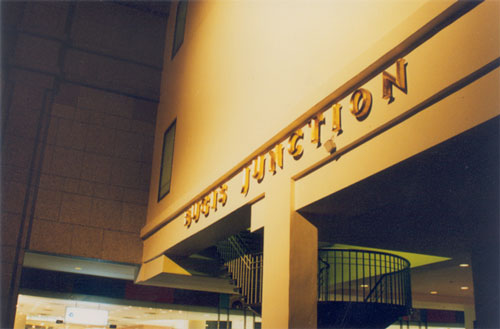I often write posts based on single words. Like Lament. Then I quote the dictionary definition, and go ahead and dissect it in all possible ways, usually from an etymological point of view, and try to make some meaning, fill up the post, and show-off how smart I am. Most posts that follow this format have failed, and a few times, have been marauded by fierce attacks by those who are experts in vocabulary, as has been taught to them.
This is not such a post.

Five weeks ago, a gentle, soft-spoken, and an intelligent friend; and I, went on a road trip, which was in planning for a couple of years. Without much warning, there was a meteor shower of cosmic conspiracy, and we were on a road trip. He lives in Madras, I live in Mumbai. I flew to BLR and he drove down there. We drove thus: BLR – Tiruvanamalai – Gingee – Puducherry – Madras. I took a flight back to Mumbai from Madras.
A dear American friend was once visiting Mumbai, and we had a full day to ourselves. We decided to spend the day in South Mumbai. We took a taxi and went from the airport to the south. Much construction littered our route. I prepared him for the delays, somewhat apologetically (Only for the delay, not much else) He ignored it and asked me about the construction. I told him about it: here a flyover, there some road-widening, here an over-ground metro, there a swanky residential building, and such. You must be very excited, he said. I thought he was being sarcastic. More often than not, Americans are known to be direct. And then, he said:
“You are living in a Renaissance,” he said, finally. “You are living in the time of change.”
It’s true. We are. We all are. We all have. Almost everybody who has ever lived in this world has lived in a time of change. But a renaissance is different. To me, you live to see the change; that’s renaissance. And therein lies the problem. There is world view and our understanding of the world as it is, and simultaneously there is a change – which we are excited about.
Then comes the transformation – the change taking over. Somewhere along the timeline the excitement attains Nirvana. There is awareness, but it does not exist; seems unreal. But, let me bring you back to something that was real – the drive from BLR to Tiruvanamalai. It was a ‘renaissance road’ – so to speak, and my friend who was driving talked of options that were smoother and faster. We chose Renaissance.
And we experienced the romance of a road that does not divide the traveller and the roadside vendor. We stopped for chai. Even though we were in coffee country. Late that evening, it was the first time in my life that I ever had Bournvita-laced chai. Perhaps the beautiful young lady making the chai was influenced by my friend’s lofty description of how I had travelled all the way from Mumbai (I don’t speak the local language) and I had this sudden (insert: dramatic hand-waving-based-presentation by my friend, which I saw, but did not understand) urge to have chai here; must have inspired her to make the best chai she could. Perhaps I was imagining things. And while I was lost in imagination, my friend, by way of how he had majestically introduced me, made me a centre of attraction, not just to that young lady, but also to the other peripheral uninterested customers. I was half-thinking they’d take my photograph, post it to Foursquare, geo-locate, and comment, “Achievement unlocked; saw an unlikely Mumbai specimen.” Some lofty ideas about Indian identity are circling my head, but for this moment, suffice it to say, that most of us (Indians) stand out when we travel far away. In spite of my inclusive and adaptive upbringing, I am no exception. The advantage of my upbringing, is just this: that I do not feel out-of-place anywhere, though I may look out-of-place. Thank God for that.

The young lady at the chai stall asked me a question about the chai. I did not understand the word, but I knew she used the words: sugar, milk. I told her I liked it. I had no idea how I’d tell her that it was a unique experience drinking Bournvita-laced chai. We bid farewell to her and went on our way. On a local (or a state road) that was in a state of repair because of which we arrived in Tiruvanamali a couple of hours later than we expected.
All through the wretched road, we debated if we should have taken the longer Expressway, which is better. We could have driven faster and reached in time. But then, we would have missed the Bournvita-laced chai. By common consensus, we agreed we took the right decision, and lamented the lack of such an experience on these new balustraded, railing bound, monotonous, experience-less expressways.
We drove all night. Reached Tiruvanamalai late in the night. We lamented the luxury of the expressway, but we loved our experience of the Bournvita-laced chai. Thank God for state and district highways.
As a person who lives in the times of a renaissance, I have the luxury to traverse the old world and the new. My adventure is this journey.
I am blessed, and in no small measure, because of my friend who drove through that state of repair.





















